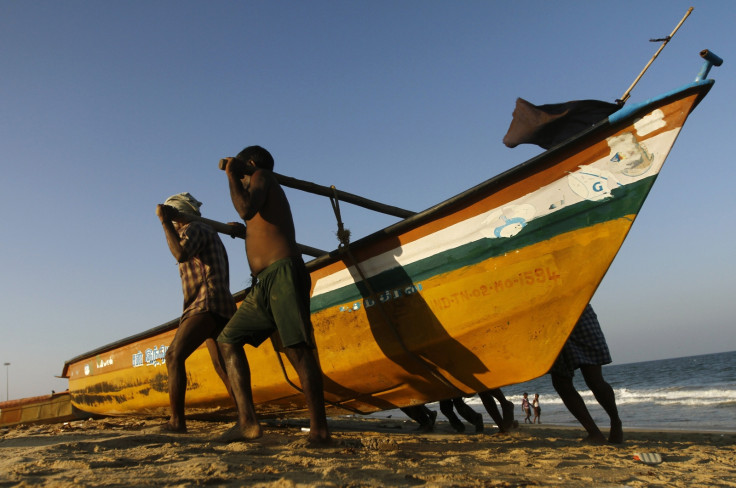Oil tanker collides with cargo vessel in south India spreading slick
Reports of deaths of fish and turtles on the beaches emerge as oil slick spreads.

Fifty-six hours after two cargo vessels, one of them an oil tanker, collided off Chennai city in southern India, the oil spill is fast spreading across the shoreline, posing a threat to marine life. A 30km radius is being monitored as officials are still checking the spill's impact on the marine ecosystem.
Walkers were shocked to find oil in the sands in many beaches including the popular Marina, a 6km-long promenade, the world's second longest urban beach.
The collision between liquefied petroleum gas (LPG) vessel MT BW Maple and oil tanker MT Dawn Kanchipuram coming from Mumbai took place at Ennore port, located on the outskirts of Chennai, on Saturday, 28 January. Local reports suggest at least one ton of oil could have leaked though there is no official confirmation. The incident is being blamed on human error.
An official statement released by the Ennore port authorities before the oil spill was detected said: "There is no damage like oil spill and no casualty or injury to any person. Both vessels are afloat and anchored. The extent of damage is under assessment."
Chennai oil spill deadly for spawning fish and nesting turtles https://t.co/0Op7LKUvaq pic.twitter.com/OJOuPPvJBV
— Chennai News (@NewsinChennai) January 31, 2017
Dead turtles and fish were found floating on the sea by several fishermen in nearby localities. Local groups and fishermen's organisations have asked the government to quickly deal with the situation and contain the spill as they have been unable to venture into the sea for two days. A mopping operation using submersible pumps has been set in motion. The Indian Coast Guard has notified the owners of the vessels to take action.
"In many places people were playing in the water despite the blackish oil floating around. Several fishermen from Nochikuppam, who landed their boats after fishing trips, said there was a strong smell of oil in the sea," Anusya Parasuraman, a resident and a morning walker, was quoted as saying.
© Copyright IBTimes 2025. All rights reserved.






















